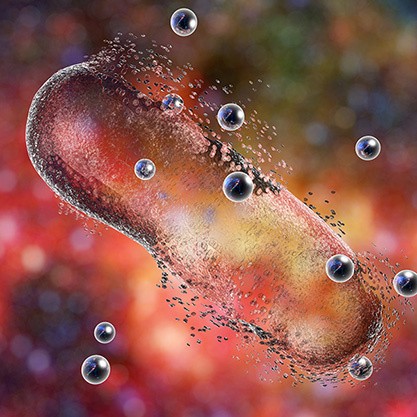Between 2011 and 2022, thanks to the various measures implemented under the Ecoantibios Plans, exposure to antibiotics in the poultry industry in France was reduced by 72% (Anses 2023). The rational use of antibiotics is an important issue, as it raises major concerns relating to public health, the environment and animal welfare. This concerns the development of antibiotic resistance, which can make medicines less effective and infections more difficult to treat.
Improving animal welfare to reduce the use of antibiotics
The industry is continuing its efforts, and among the improvement plans, good rearing conditions appear to be one of the most effective levers. Techna has developed the WEFEED diagnostic tool to help industry players, technicians and farmers improve animal comfort. By means of observations, measurements and questions proposed by the tool, the critical points on the farm are identified and evaluated so that the necessary actions can be taken and their effectiveness measured.
Sub-optimal rearing conditions, such as inadequate ventilation, poorly absorbent or degraded bedding, draughts, water quality, etc., have an impact on the microbiota, intestinal integrity and, consequently, nutrient uptake. Immune status can also be affected, reducing poultry's natural resistance to disease.

Nutritional strategy and key functional ingredients are the key to improve digestive health and performance
The quality of the feed formulation is a key factor in the proper functioning of the digestive tract, finished diets must provide the animals with nutrients that are as digestible as possible and adapted to their needs. The nutritional strategies used to formulate feed ranges are based on the fundamental needs of poultry: energy, proteins, minerals and trace elements. Techna has developed a strategy of continuous scientific and farm based research to both establish and continually improve our knowledge and expertise in this sector. Our highly accurate Energy matrix and in-depth knowledge of amino acid requirements and balances (ideal protein) and of the nutritional characteristics of protein sources allow for protein levels to be accurately reduced while maintaining performance, thereby reducing the presence of unassimilated proteins, the risk of caecal fermentation and of degraded, damp droppings. Electrolyte levels are also stabilised to avoid excessive water consumption.
Functional ingredients to support digestive health
Functional ingredients can also maintain intestinal integrity for better assimilation, regulate inflammation and preserve the diversity of Microflora. AVIDRY is a plant extract-based solution offered by TECHNA, which can be incorporated into feed formulations. Field trials and measurements have demonstrated the positive effects of AVIDRY on digestive health and welfare resulting in drier droppings and dry matter improvements, and a reduction in pododermatitis and ammonia production.
Feed presentation is also a key part of any nutritional strategy. Digesta transit speed, mechanical action of the gizzard and water consumption are all affected by the fineness with which the raw materials are ground, as well as by the physical characteristics of the meal, crumbs (grain size) and pellets (hardness, durability).
This global approach of Techna is to improve well-being and optimise feed efficiency, an important criterion in the economic profitability of the sector.
Talk to our experts
Feedia embodies Techna's range of advice and solutions in breeding techniques and precision nutrition, serving the performance of production organisations, feed manufacturers and their breeder customers.



